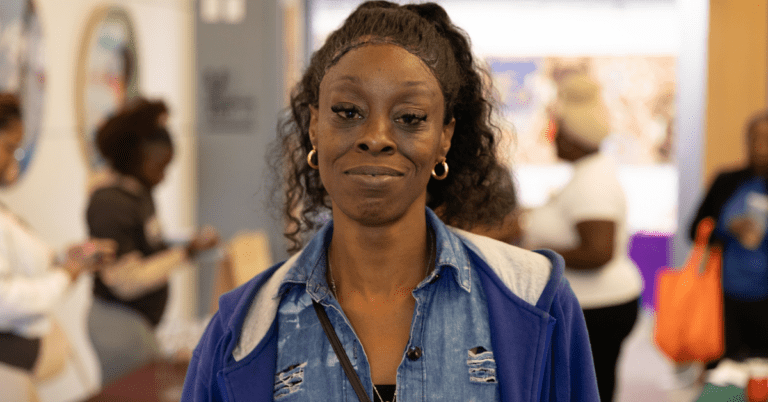Health care in Philadelphia? If you ask the people living it, they’ll tell you it’s not cutting it—especially for Black folks. The struggle to find quality care, feel heard, and get proper treatment is too real. We interviewed the people of Philly to learn more.
Jane shared how her son was denied care simply because of his mental health history. “They didn’t believe him,” she said. That’s a story too many of us know.
What happened to Jane’s son is a sad reminder of a big problem in healthcare: sometimes, doctors and nurses don’t believe Black people when they say they’re in pain. This kind of unfair treatment has been happening for a long time, and it can have really bad consequences for people and their communities.


Antonia, who’s been battling hidradenitis suppurativa (HS) for over a decade, talked about being misdiagnosed, brushed off, and left to figure out her own solutions. “I had to research my condition myself,” she said. “No doctor even knew what it was at first.”
Antonia’s experience is a disheartening example of a broader issue in healthcare: the misdiagnosis and delayed diagnosis of conditions that affect Black communities at higher rates. Her story highlights the frustrating and often isolating journey many Black individuals face when seeking answers and proper care for their health concerns.
And let’s not forget about the waiting game. Whether it’s months-long delays for appointments or canceled visits due to insurance mix-ups, Josh put it best: “When I feel like it’s an emergency, they’re like, ‘The next appointment is three months away.’”
Access to timely healthcare shouldn’t feel like winning the lottery, but for many, it does. These delays and disruptions aren’t just inconvenient; they can have serious consequences for our health.
When people feel like the healthcare system isn’t there for them when they need it most, it erodes trust and can discourage them from seeking care in the future.

Why Does It Feel This Way?
Over and over, people shared that the care they get often depends on where they live. “The closer you are to the suburbs, the better the care,” Josh said. But if you’re in areas like North Philly? It’s a different story—long waits, rushed appointments, and a feeling that you’re not really being heard.
For Black people, there’s also the heavy weight of distrust. Whether it’s stories passed down about Tuskegee or personal experiences with bias in the doctor’s office, it’s hard to trust a system that hasn’t always had our back.
What Needs to Change?
1. Listen to Us: Stop dismissing our pain. When we say something’s wrong, believe us and dig deeper instead of just saying, “It’s all in your head.”
2. Make Health Care Accessible: More clinics, better hours, and lower copays can go a long way. No one should have to skip care because they can’t afford it.
3. Build Trust Through Transparency: Whether it’s clinical research studies or routine care, we need to know what’s happening, why, and how it’ll impact us.
4. Invest in the Community: “Meet people where they are,” Antonia said. Help folks get insured, and bring care directly to neighborhoods that need it the most.
Why Community Matters

Despite the challenges, one thing that stands out is the power of community. Whether it’s Antonia finding support groups for her HS or community member Christopher joining a clinical research study because, “Not enough Black people do,” being part of something bigger than yourself matters.
“When you know you’re not alone, it hits different,” Antonia said. “You see people going through the same thing, and you realize you’ll be okay.”
This is Philly’s health care reality. It’s raw, it’s real, and it’s not okay. But with voices like these, there’s hope for change.
You Might Also Like:

Voices of Miami Share What Keeps Them Healthy
In our latest trip to Miami, we caught up with two community members, Tyneisha and Anthony, who shared how they stay healthy.

Latonya’s Story: A Long Road to the Right Diagnosis
For years, Latonya knew something wasn’t right. Her body was fighting against her, until she finally received a lupus diagnosis. Read her story to learn more.




